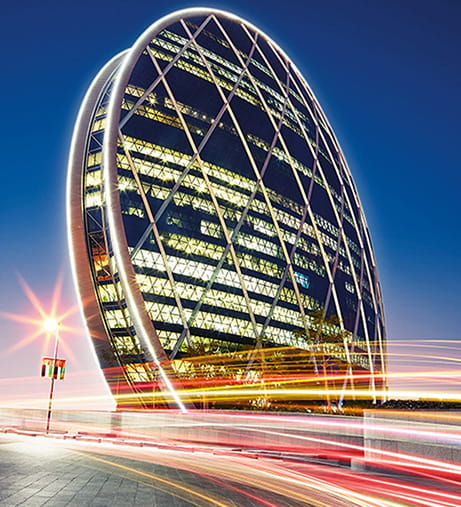#Featured
September 27, 2023
The Role of Energy-Efficient Appliances in Sustainable Living
As people become more aware of the dangers of global warming and depleting natural resources, sustainable living is becoming increasingly important. Governments, companies, and individuals are taking serious steps towards adopting more eco-friendly technologies and practices.
Energy-efficient appliances are one way to achieve sustainable living. In this article, we will explore the negative environmental impact that traditional appliances have and how using energy-efficient appliances can aid in energy conservation.
Such technologies allow us to live luxuriously and responsibly while ensuring long-term cost savings (such as utility bills reduction).
What is Sustainable Living?
To live in a sustainable environment means to balance between environmental, economic, and societal aspects as a whole. The goal is to meet the needs of the current generation from natural resources in a non-harmful manner without affecting the environment’s ability to meet the needs of future generations. This approach ensures we do not deplete natural resources, increase our carbon footprint, or cause environmental damage.
How Does Electricity Affect the Environment?
The problem is not electricity, but how it's generated. Power plants burn fuel, oil, and coal, which leads to the release of greenhouse gases, which results in global warming and climate change.
Greenhouse Gases
Although these gases occur naturally, their increased levels due to energy consumption are harmful to the environment. These gases trap heat in the atmosphere, contributing to the harmful effects of climate change. The primary greenhouse gases include:
- Carbon Dioxide: Primarily released when burning fossil fuels like coal, oil, and natural gas.
- Methane: Originating from natural and artificial sources, it’s commonly produced during the extraction and production of oil and natural gas.
- Carbon Monoxide: Released during the incomplete burning of fuel.
- Nitrous Oxide: Emitted from agricultural and some industrial activities.
The Effects of Using Traditional Appliances
The use of electronic appliances is indispensable in any home. Technological advancements have increased the number of machines we rely on in our homes. However, not all are eco-friendly. Some of the negative impacts of traditional appliances include:
Electricity Consumption and Carbon Emissions
Non-energy-efficient appliances consume large amounts of electricity, which means more electricity production and, consequently, an increase in harmful emissions from burning fuel in power plants.
Depletion of Natural Resources
When producing appliances, factories consume numerous natural materials, like water and minerals. As such, this increases the strain on the already limited environmental resources.
Increased Water Consumption
Certain appliances, especially older cooling and air conditioning units, require more water to operate, contributing to excessive water use.
Air and Water Pollution
The increased carbon emissions resulting from the heavy use of electricity lead to the pollution of water and air around us, posing health risks to humans and other living beings.
Energy Loss
Some old and traditional devices lose much energy in the form of heat, which cannot be utilised, and they raise the temperature within the home.
Electronic Waste
Discarded electronic appliances pose another threat to the environment. When improperly disposed of, they exacerbate environmental harm due to the leaking of toxic substances such as mercury and lead that affect soil and water.
Using energy-efficient appliances is one solution to tackle these problems and be kinder to the environment.
Advantages of Using Energy-Efficient Appliances
Energy-efficient appliances play a significant role in achieving sustainable living through the following:
Increased Energy Efficiency
Energy-efficient appliances entail less electricity consumption. By consuming less power, they reduce carbon emissions in every step, from the factory to the home. At Aldar, we’re aligning our projects with the net-zero strategy.
Utilising Renewable Energy
Many modern devices are designed to work seamlessly with renewable energy, such as solar panels and wind energy. Using clean energy helps mitigate the harmful impacts of climate change.
Responsible Disposal
Energy-efficient appliances often use sustainable materials. When the time comes for disposal, many of these products are recyclable (a stark contrast to throwing them in regular waste dumps).
How Does Aldar Support Sustainability?
As a leading real estate company, we proudly develop innovative projects in Abu Dhabi’s prime locations, such as Saadiyat Island, Al Reem Island, and Al Raha Beach. Our commitment isn't just to build, but to build sustainably. A testament to this is our ambitious Sustainable City project on Yas Island - in line with the UAE Net Zero by 2050 Strategic Initiative - which was achieved through:
- Using natural materials.
- Preserving biodiversity.
- Expanding shaded areas to reduce temperatures.
- Monitoring water consumption.
- Working on reducing energy consumption.
Overall, energy-efficient appliances have a role in reducing environmental harm by addressing and mitigating the negative impacts of traditional devices. However, protecting our planet requires collective efforts.
By transitioning from traditional to energy-efficient appliances, we can reduce carbon emissions and electronic waste, conserve natural resources, and thus create a more sustainable future.

